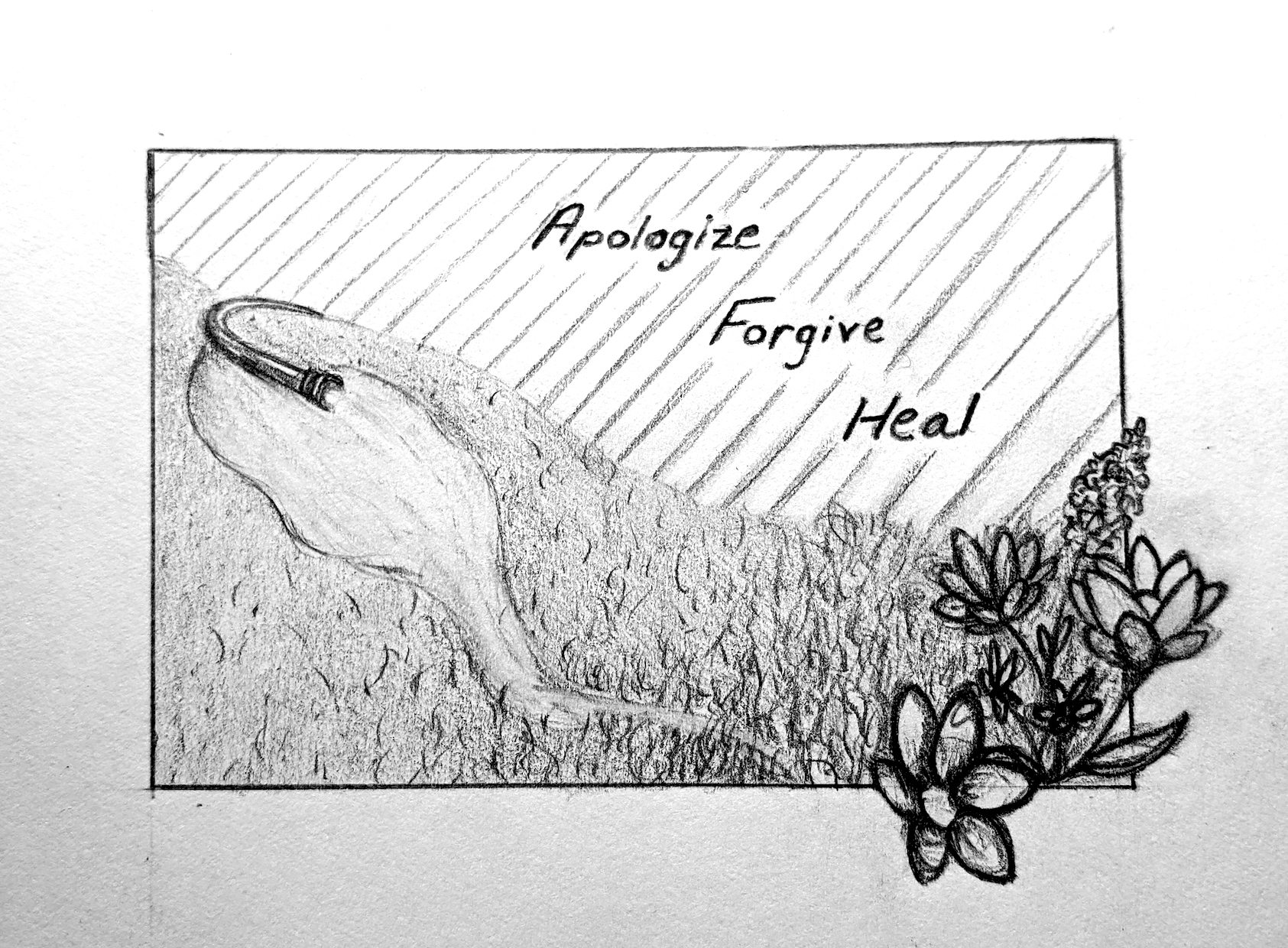I recently gave a talk on a topic that many in the audience felt was too personal for a church or public gathering. Listeners where squirming in their chairs and looking around the room to see if anyone else noticed they were uncomfortable. The topic? Saying “I’m sorry.” When Debbie learned what I was speaking on she was surprised, “What do you know about apologies? Do you know the last time you apologized?” The answers to her questions were, in order: “Not much but I’m learning.” and “Haven’t the foggiest idea.”
After a little good-natured ribbing Debbie joined me on our deck for a wonderful discussion of the ins and outs of apologies. There are differences in how men and women view apologies. There are also differences in reception of the apology based on the sincerity of the apology. Some apologies are inconsequential or merely polite, such as when you bump into someone on the sidewalk. Some are life changing such as when you confront your own behavior in front of God and those you have hurt. We both concluded it was way too easy to judge the sincerity of the person apologizing when that judgment should be left up to God.
Later on I was sitting on our deck, just below the open kitchen window, starting to work on an outline for an upcoming essay when I felt a sprinkle of water. I looked up but the sky was clear. Pretty soon I felt two sprinkles of water and when I looked up again I saw Debbie in the window with a big grin on her face. Of course she said “sorry.” A few moments later another spritz of water, this time followed by a much quicker, “Sorry.” Then I heard “Sorry” before a spray of water actually hit me! I chose to work somewhere else.
Christ was pretty direct about apologies as He was about all aspects of relationships. The passage in Matthew that talks directly to apology is wedged directly between verses on murder and adultery. Christ’s comments on relationship are to be taken seriously. Purposely being out of a loving relationship, or purposely damaging a relationship was considered so damaging Christ tells us to leave church, offering ungiven and worship delayed, in order to seek reconciliation. Relationship is a key theme throughout the Bible.
The Ten Commandments are not just ten rules for entry into heaven but are, at their essence, a way to have a relationship with the Almighty. God was saying, in ten different ways, you cannot have anything between you and the Almighty. You cannot have a relationship with God if you are judging God’s provision. You cannot have a relationship with God if you are coveting what God has given someone else. You cannot have relationship with God if you take away a gift that God has given someone else. It is all about relationship.
It is an ancient yet false cultural perception that seeking forgiveness and being in a healed or healing relationship is really a display of weakness. Apology reeks of vulnerability. We do not really want the relationships in our lives to be on an equal footing because it takes away a financial or social advantage. But Christ was perfectly clear that we should forgive hundreds of times because relationship is that important. Relationship with mankind or God is not about advantage. The honest person will quickly realize that true apologies can only happen when we depend on the Love of God to begin to mend a broken relationship.
It should also be clear that apologizing does not mean we are a doormat or someone to be abused. We need to seek the Christ-like ideal for forgiveness but we should never put ourselves in danger. Relationships built on Christ’s love are never about power, abuse or advantage.
I am part of several groups, some leadership and some not, undergoing or supporting significant change. Change inevitably becomes associated with hurts and fears. One group is a church and the two groups are public institutions. Both can be equally frozen by the fear of change. In every case my best behavior is founded in Matt 5: 23-251: It is best to listen, apologize when appropriate, and to not judge when others might need to do the same. I don’t tell any of the group members that my relationships with them are really a good way for me to live out my relationship with God — but I hope it shows.
Now if you will excuse me I need to get ready to apologize as I sit on the deck with my garden hose.
In Christ,
Phil
“You have heard that it was said to the people long ago, ‘You shall not murder, and anyone who murders will be subject to judgment.’ But I tell you that anyone who is angry with a brother or sister will be subject to judgment. Again, anyone who says to a brother or sister, ‘Raca,’ is answerable to the court. And anyone who says, ‘You fool!’ will be in danger of the fire of hell.
“Therefore, if you are offering your gift at the altar and there remember that your brother or sister has something against you, leave your gift there in front of the altar. First go and be reconciled to them; then come and offer your gift.”
Matt 5:21-25↩From the “What Is On My Night Stand” department: I’m currently rereading, Uncommon by Tony Dungy. I’ve always admired Tony Dungy as a coach but I’ve also admired the strength of character he demands of himself and his players. Even if you don’t like football his discussion of making the right choice for the right reason is worth thinking about. Yes, he has known success of winning championships but he also has known failure, tragic loss of life, and defeats that happen to all of us, yet he continued to make the right choices. I find this book a good one to re-read from time to time and I like to give it as a gift to people who love sports because it can be the spark for a nice discussion.


